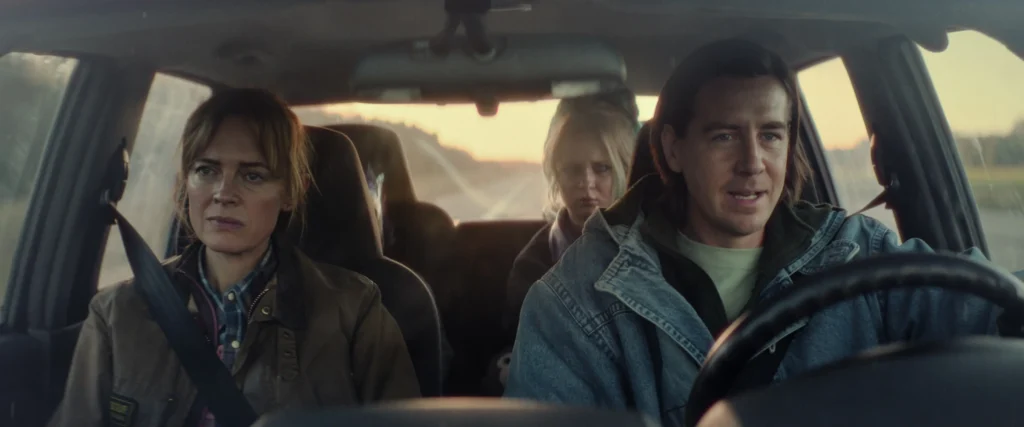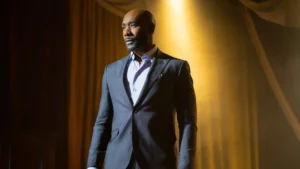Summary
Sad, heartwarming, and heartbreaking, Josephine Bornebusch’s Let Go has everything.
The Swedish drama film Let Go (original title: Släpp taget) fashions a few ideas together. It starts by establishing a complicated family—a young son, a moody teenager, and a hectic household.
The mother, Stella, is exhausted from managing the home. Her husband, Gustav, is distant. He looks invisible in the opening, which provides a more meaningful point later. Gustav asks Stella for a divorce, but she refuses. What follows is a family trip during which Stella tries earnestly to reunite the family during their most challenging time.
Let Go is a far more serious drama than advertised. It details, realistically, the emptiness of a broken marriage. How it can, over time, become a shell of what it was. There’s a sad, underlying tone to the movie where we can appreciate, as the audience, what Stella and Gustav once were, and that’s a credit to the leading cast (Josephine Bornebusch and Pal Sverre Hagen) and their performance. There’s proof here that chemistry can derive from a negative relationship experience. These two knock it out of the park as a miserable husband and wife.
Let Go does not lead with blame. The road trip is testy, but it’s abundantly obvious that the breakdown in marriage is based upon the lack of unmet needs and lack of communication. The pressures of family and leading a serious life are the brunt of the script, and a husband and wife simply stop supporting each other.
But what makes the movie more compelling is Stella’s insistence that she and Gustav do not divorce, at least not until after this family road trip, so their daughter, Anna, can enter a pole dancing competition. There’s a strong theme of the sanctity of marriage, as Stella ironically says to her disassociated husband, “Till death do us part.”
I think that’s what makes Let Go charming. While the movie provides a significant twist, the idea that divorce is not as simple as asking for it makes for an intriguing script.
No punches were held; running a family is hard. Having a bad-mouthed, hormonal teenager is stressful, and a young boy with gluten problems is anxiety-inducing. The Netflix film does not try to hide why marriage can create a gulf between two human beings.
But more to the salient point, Let Go is as heart-wrenching as it is compelling. If I knew it was going to break my heart, I’d have taken a more prepared approach to my viewing. The film articulates that divorce can bring insight; whether you’ve been a nagging wife or a terrible husband, the truth exposes itself. However, I was not expecting the truth to be so damning here.
You’ll walk away from this having more appreciation for those you love. If you love your partner, you’ll want to cherish them. Director Josephine Bornebusch does a number on her audience, which is not surprising in the slightest, as she directed three episodes of Baby Reindeer, known for provoking many reactions from the viewers. I suppose I’m trying to say, in a convoluted way, that I loved Let Go. This is my kind of film.
Read More: ‘Let Go’ Ending Explained – My Personal Letter Regarding The End Of This Wonderful Swedish Drama




